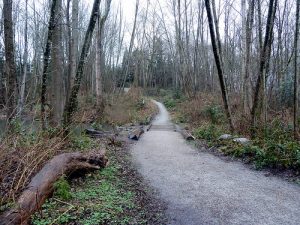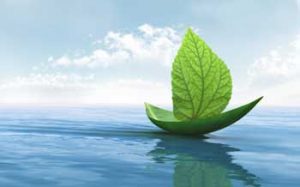O.W.L. and Water, Water, Everywhere – Update April 12
Hello Everyone,
As we continue our nature studies, we are learning about ecosystems, biodiversity, and our impact on both. This means taking time to look closely at the plants, animals, and trees around us! We had time to do this during our Everett Crowley Walk yesterday, and we will also see more natural areas during our Watershed trip on Tuesday, April 18th.
Today we had a great visit from O.W.L. in Delta, B.C.! For 90 minutes, we learned all about the types of raptors in the local area, such as bald eagles, golden eagles, barred owls, peregrine falcons, osprey, turkey vultures, and more. Then we visited with two birds — Katie, an American Kestrel and Pokey, a Barred Owl. They were amazing birds, and you can see pictures of them on the O.W.L. website here. Next week, you will receive a notice regarding a fee of $7.38 for the session, as explained in my previous posts and emails.
We also did more preparation today for our Watershed Trip by talking about the four parts of the water cycle — precipitation, evaporation, transpiration, and condensation. Then we participated in stations provided by a GVRD kit to learn more about how our water gets to us. There were two articles to read on Water in BC and Rivers, and everyone needs to finish answering the questions below:
- Name the places you can find water (not the names of actual towns or rivers, but rather the places you can find surface and ground water.)
- What is another name for the water cycle?
- What do organisms use the salt of the oceans for?
- How often do tides change?
- What is a current?
- What are tributaries?
- What does anadromous mean?
- Give a pros/cons chart on dams with at least 3 pros and 3 cons on each side of the chart. What are the good things and the bad things about having a dam?
- Explain the Elwha River restoration.
Everyone also completed a BACKPACK prep sheet, so you will know what to bring on the Watershed Trip Tuesday. Here are some things to remember:
- It is colder up there than here at school level. We will be going rain or shine.
- Dress warm and have a toque/small hat, gloves, rain jacket, warm socks, water resistant walking shoes, comfortable walking clothes in layers so you can remove layers as you get warm.
- Put an extra pair of socks in your backpack. Sometimes they do a forest walk, so you may need a change. If it is raining a lot on Tuesday, pack a light pair of extra pants, but don’t make your bag too heavy!
- Have a water resistant backpack. Small is better as you have to carry it the whole time.
- Antibacterial hand sanitizer, as there is not running water up there. Great idea to have it in a small ziploc bag so it does not spill.
- BIG LUNCH and SNACKS! Make sure you go with low litter lunch options. No metal containers that require a table, as we will eat outside. Ideas: sandwich, bag of veggies, banana, granola bars, breakfast bars, cheese puffs, etc.
- WATER BOTTLE — make sure it has a secure lid and will not spill. Make sure it can be put inside your backpack or attached to backpack.
- Extra plastic bag for garbage. There are not garbage cans up there. Pack out what you packed in.
- Sunscreen — put some on your face and exposed areas before we head up in the morning.
- Camera — no iPads/large cameras, go with a small one or a phone. Put it in a plastic bag for protection from rain.
- Napkins/Tissues to clean up or take care of nose issues if they come up, as there are not bathrooms up there.
- No umbrellas! No books! No journals!
Thank you, everyone, for doing your best to prepare well for the trip! Please contact me if you have any questions.
Ms. D




